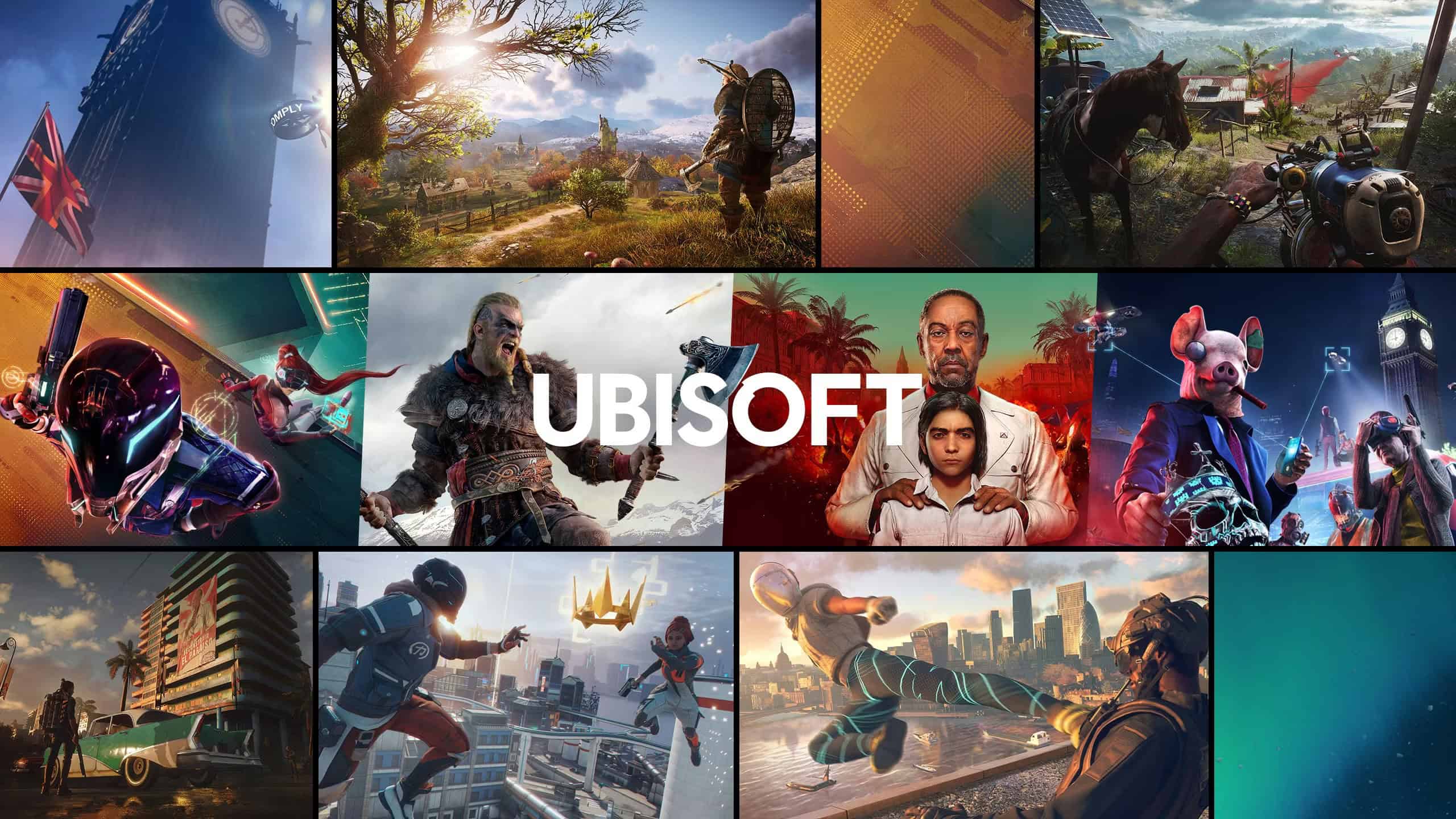After beginning as a mail-order service for home computers in its native France, Ubisoft (a portmanteau of the phrase “ubiquitous software”) would be founded in earnest in 1988 as a software publishing company. Since those early beginnings, Ubisoft has grown to become one of the most prolific and important game publishers in the industry, acquiring several in-house studios and producing some of the most important game franchises of the 6th console generation and beyond. Though the company seems to have lost its way a bit in recent years with a shifting focus to live-service titles, several of the best Ubisoft games are undoubtedly highlights within their respective genres, and the company is responsible for more than a few of the most successful IP in video games.
Tom Clancy’s Splinter Cell
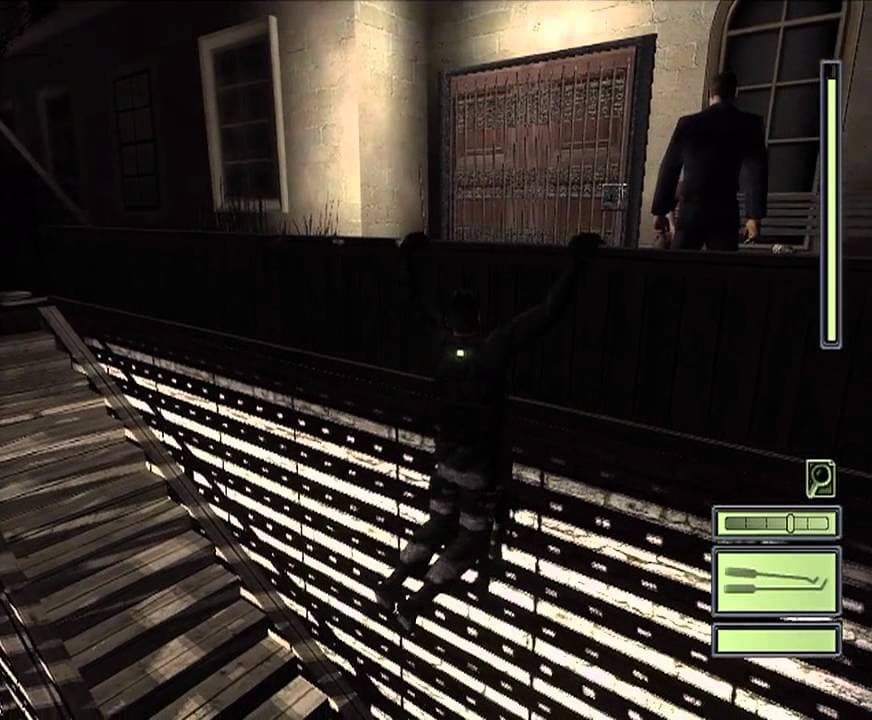
©Tom Clancy's Splinter Cell gameplay screenshot - Original
- Release Date — November 18, 2002
- Platforms — Xbox
- Metacritic Score — 93% (Universal Acclaim)
One of Ubisoft’s most impactful decisions in the late 90s was the acquisition of the Tom Clancy license, which gave way to a whole slew of incredibly successful franchises as a result. Among them is the Splinter Cell franchise, and the first entry is still one of the best stealth games of all time and a strong competitor for the Xbox to have against the PlayStation 2’s Metal Gear Solid 2. Despite the fact that both Splinter Cell and MGS2 would make their way to competing consoles during the generation, Splinter Cell is still seen as a classic Xbox title and one of the best examples of a realistic stealth game making good use of its Tom Clancy license.
XIII
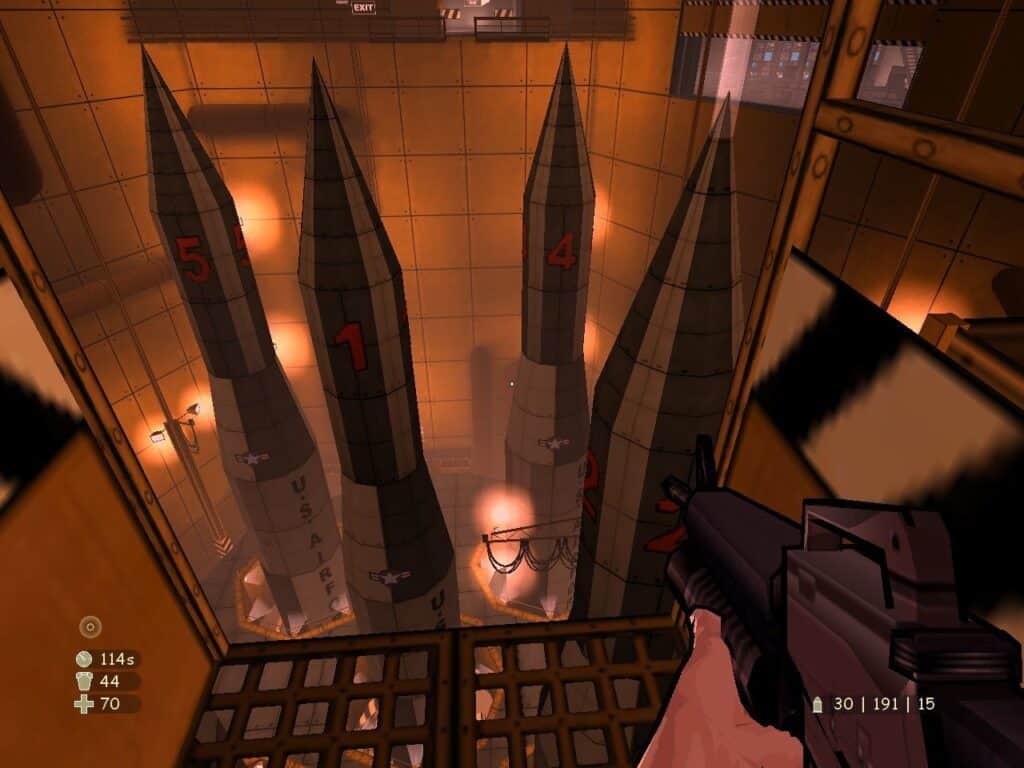
©XIII Classic gameplay screenshot - Original
- Release Date — November 18, 2003
- Platforms — GameCube, PC, PlayStation 2, Xbox
- Metacritic Score — 74% (Mixed or Average)
Ubisoft’s XIII is a unique shooter from the 2000s, with its comic book aesthetic and mix of stealth and shooting separating it from just about every other competitor. The title also has an excellent narrative that pulls directly from its source material, with XIII basing its proceedings on the Belgian graphic novel series of the same name. And, perhaps most importantly, XIII is one of the first Ubisoft titles to establish the publisher as being a leader in releasing multi-platform titles. It’s not quite up to par with some of the great FPS titles of the era like Half-Life 2, but what XIII does it does well.
Prince of Persia: The Sands of Time
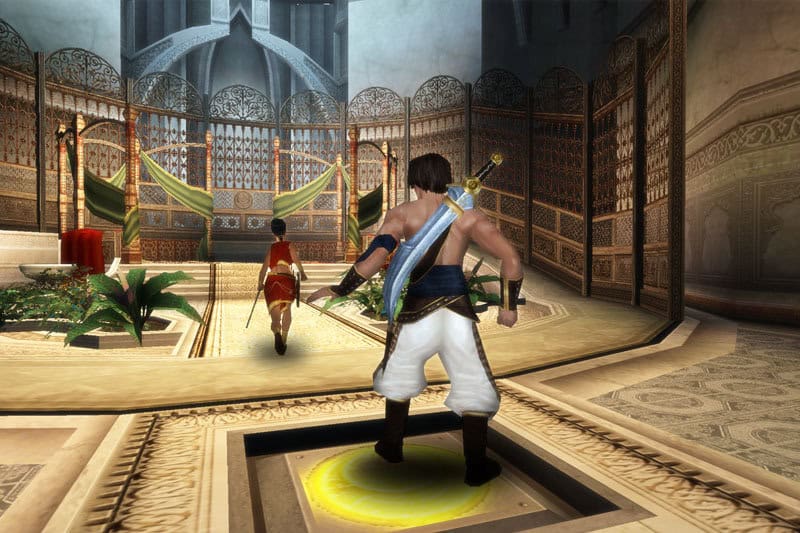
©Prince of Persia: The Sands of Time gameplay screenshot - Original
- Release Date — November 10, 2003
- Platforms — GameCube, PlayStation 2, Xbox
- Metacritic Score — 92% (Universal Acclaim)
A complete reinvention of Jordan Mechner’s Prince of Persia was an unlikely surprise in 2003. But what was more unlikely was that Ubisoft’s new spin on the classic platforming series would take the franchise in exciting new directions and spawn a generation-defining trilogy. Prince of Persia: The Sands of Time keeps the classic puzzle-platforming and combat of the original at its center, but iterates on the formula with the implementation of a novel time-manipulation mechanic. Players begin with a simple rewind mechanic that allows them to cheat death, only for the options at the prince’s disposal to greatly open up by the adventure’s end. The other two games in the new Prince of Persia trilogy are great in their own right, but the original reinvention of the series is arguably the best Prince of Persia game to date.
Tom Clancy’s Rainbow Six 3
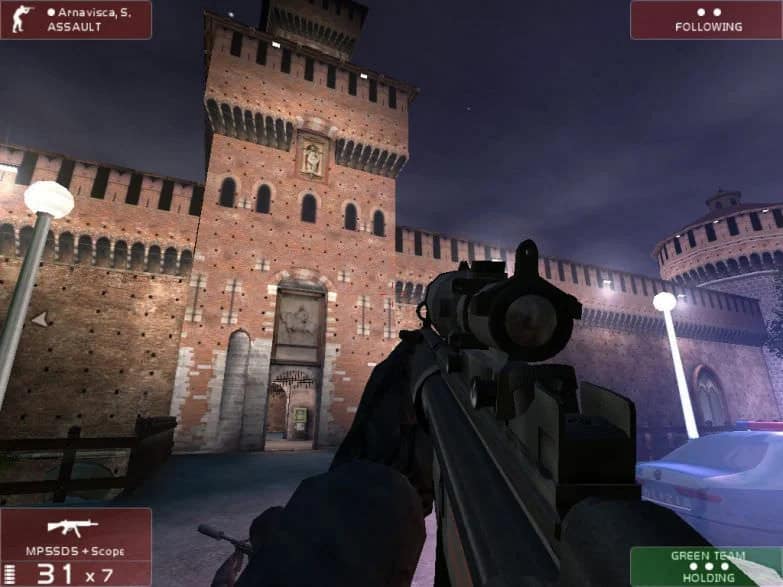
©Rainbow Six 3 gameplay screenshot - Original
- Release Date — November 12, 2003
- Platforms — Xbox
- Metacritic Score — 86% (Generally Favorable)
When it comes to 6th generation consoles, the Xbox was undoubtedly the home for first-person shooters, with the likes of Halo, Half-Life 2, and the original Far Cry all arriving on the console. Right alongside these genre greats is the third entry in the legendary Rainbow Six series, which takes the first-person tactical breach-and-clear gameplay of the original games in the franchise and adapts it into a competent and ultra-realistic FPS. Just a few years after Rainbow Six 3‘s release players would get to experience what are perhaps the greatest games in the franchise with the Rainbow Six Vegas titles, and those games owe a heavy debt of gratitude to the series’ initial turn as a first-person shooter in this Xbox classic.
Beyond Good & Evil
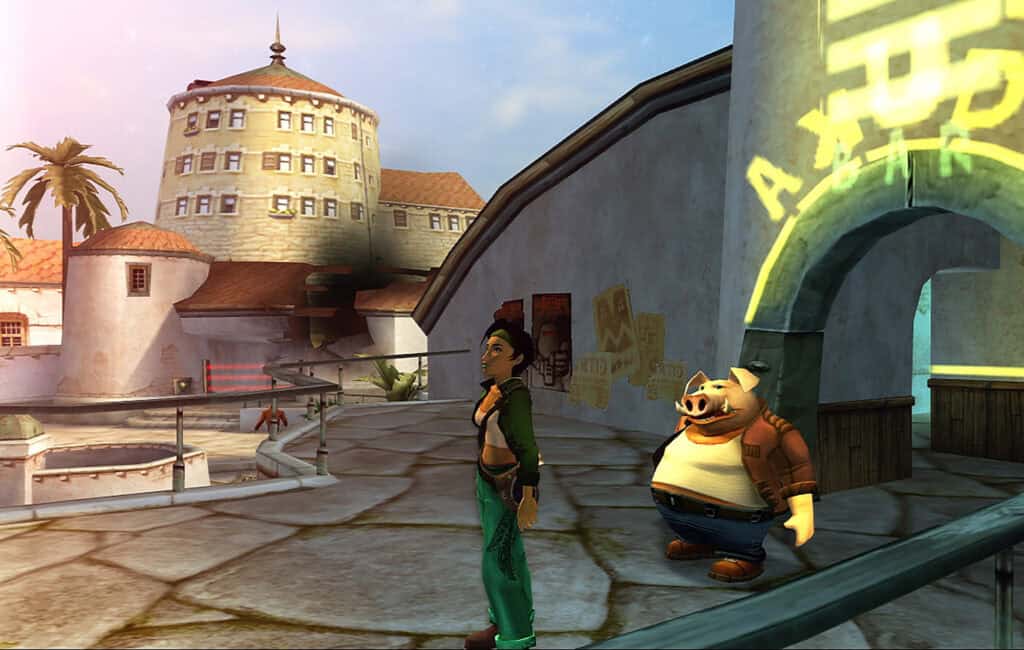
©Beyond Good & Evil gameplay screenshot - Original
- Release Date — November 11, 2003
- Platforms — GameCube, PC, PlayStation 2, Xbox
- Metacritic Score — 86% (Generally Favorable)
2003 would end up being a banner year for Ubisoft and one of the more crucial turning points in the company’s growth, especially with the slate of titles released in the year’s fourth quarter. In addition to classics like Prince of Persia: The Sands of Time and Rainbow Six 3, Rayman creator Michel Ancel’s Beyond Good & Evil would also arrive at the tail end of 2003 and completely change the gaming landscape. Part adventure game, part stealth game, and part detective simulator, to say that Beyond Good & Evil is a game unlike any other is only scratching the surface of what this classic 6th generation title has to offer. Now if only the long-in-development sequel could finally see the light of day.
Tom Clancy’s Splinter Cell: Chaos Theory
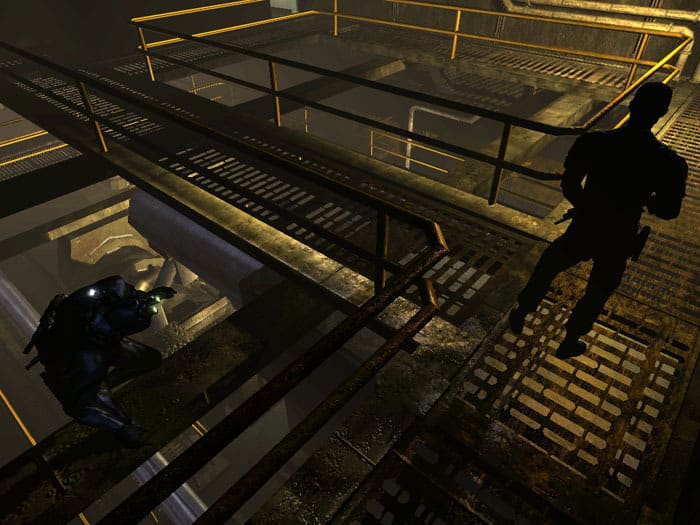
©Tom Clancy's Splinter Cell gameplay screenshot - Original
- Release Date — March 28, 2005
- Platforms — PC, Xbox
- Metacritic Score — 94% (Universal Acclaim)
The original trilogy of Splinter Cell games offers something altogether different from the melodramatic stealth-action saga of the Metal Gear Solid titles on PlayStation and PlayStation 2, placing gritty realism front and center as their main draw. The best of the initial Splinter Cell games is undoubtedly Splinter Cell: Chaos Theory, which not only includes one of the series’ greatest single-player campaigns but also a groundbreaking online multiplayer mode that proves stealth works just as well as a competitive sport. Deadly games of hide-and-seek aside, the suite of tools and stealth gameplay sandbox in Chaos Theory represents the stealth genre at its peak, and it might just be the best game in the entire Splinter Cell series.
Tom Clancy’s Ghost Recon Advanced Warfighter
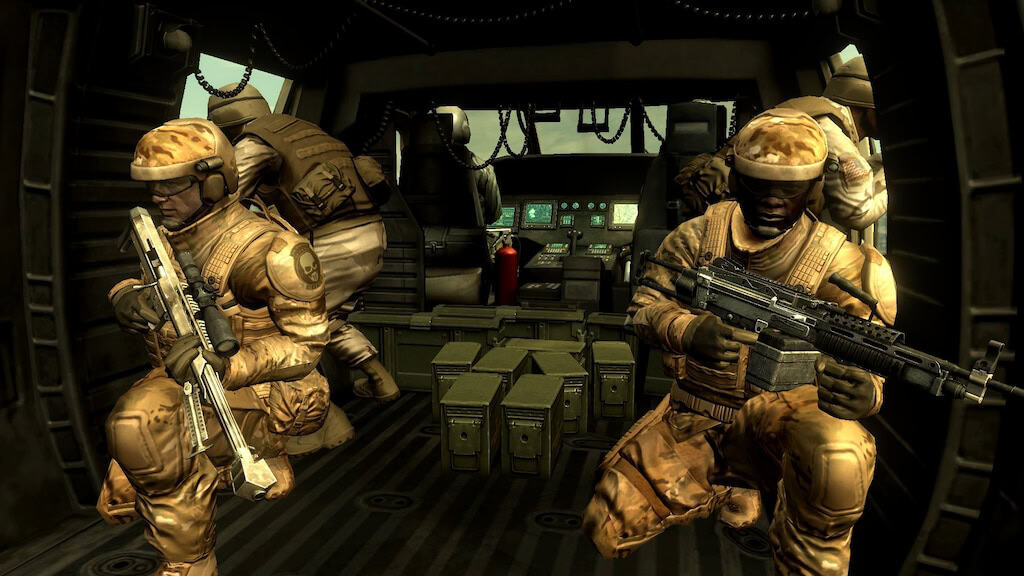
©Tom Clancy's Ghost Recon Advanced Warfighter gameplay screenshot - Original
- Release Date — March 9, 2006
- Platforms — Xbox 360
- Metacritic Score — 90% (Universal Acclaim)
Ubisoft’s success with the Tom Clancy license on Xbox would pave the way for the company to have one of the Xbox 360’s best early titles at the ready in Tom Clancy’s Ghost Recon Advanced Warfighter. Taking a slightly different approach from the earlier games in the Ghost Recon series, Ghost Recon Advanced Warfighter is akin to a mix between a third-person shooter and the turn-based tactics of games like XCOM, resulting in a challenging and endlessly fun tactical shooter that stood out as a must-have title for the second generation of Xbox consoles.
Tom Clancy’s Splinter Cell: Double Agent
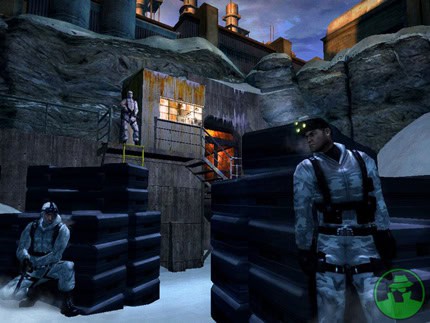
©Splinter Cell: Double Agent gameplay screenshot - Original
- Release Date — October 17, 2006
- Platforms — PC, PlayStation 3, Xbox 360
- Metacritic Score — 85% (Generally Favorable)
The first next-gen Splinter Cell is a phenomenal step up from the visuals and performance of the original trilogy, even if its attempts at greater narrative emphasis and character development fall flat in comparison to its gameplay. Story aside, Splinter Cell: Double Agent is a phenomenal stealth game that proves, along with Chronicles of Riddick: Escape From Butcher Bay, that a prison setting is a perfect fit for the genre. The standard missions where main character Sam Fisher is operating as a sanctioned agent of Third Echelon are excellent by Splinter Cell standards, but it’s the undercover sections where players get to infiltrate a domestic terrorist organization that cements Double Agent as an unforgettable entry in the series.
Tom Clancy’s Rainbow Six Vegas 2
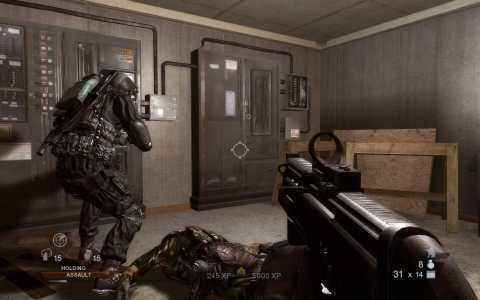
©Tom Clancy's Rainbow Six Vegas 2 gameplay screenshot - Original
- Release Date — March 18, 2008
- Platforms — PC, PlayStation 3, Xbox 360
- Metacritic Score — 82% (Generally Favorable)
The first Tom Clancy’s Rainbow Six Vegas is an excellent game that makes good on the idea of turning the Rainbow Six series into a tense tactical FPS, but the sequel goes above and beyond to be the best of the single-player Rainbow Six titles. Not only does the game include a pulse-pounding campaign that players can tackle solo or in co-op, but the Terrorist Hunt mode invites hundreds of hours of gameplay in local or online co-op to hone your skills as a Rainbow Six operative and chase increasingly challenging goals to clear maps with max enemy density and limited resources.
Assassin’s Creed II
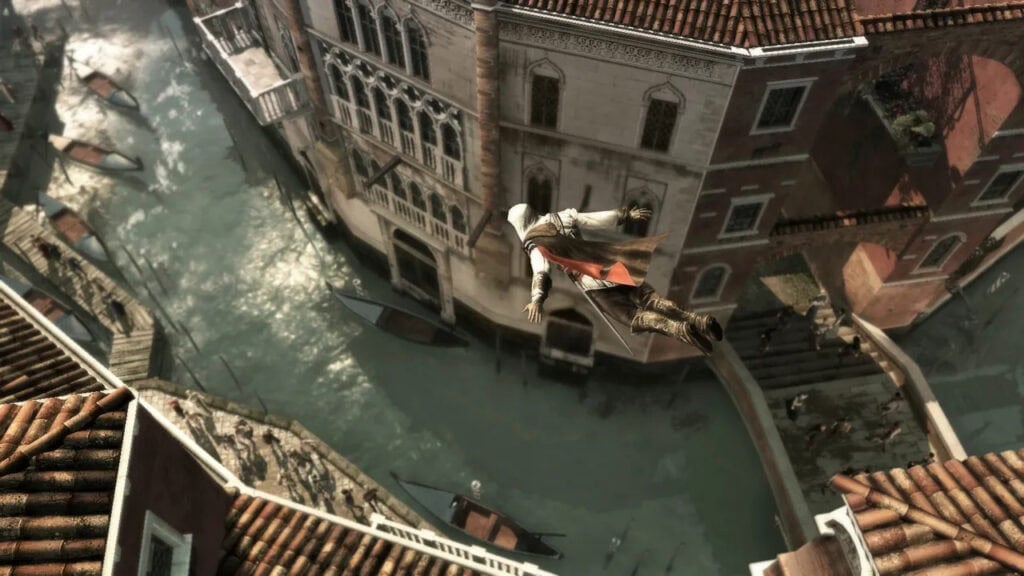
©Assassin's Creed II gameplay screenshot - Original
- Release Date — November 17, 2009
- Platforms — PC, PlayStation 3, Xbox 360
- Metacritic Score — 90% (Universal Acclaim)
The first Assassin’s Creed is an important game for establishing one of Ubisoft’s most successful franchises, but Assassin’s Creed II is where the series truly comes into its own. Everything about Assassin’s Creed II is an improvement over the original. The stealth and traversal mechanics are more polished and less clunky, the story has more focus and takes the player to some truly surprising places in its late-game revelations, the visuals are stunning, and the open-world sandbox of Renaissance-era Rome is a stealth playground like no other. Further, Ezio Auditore establishes himself as one of the series’ best protagonists, to the point where the next few years of the franchise hinge on his actions in the second game.
Tom Clancy’s Splinter Cell: Conviction
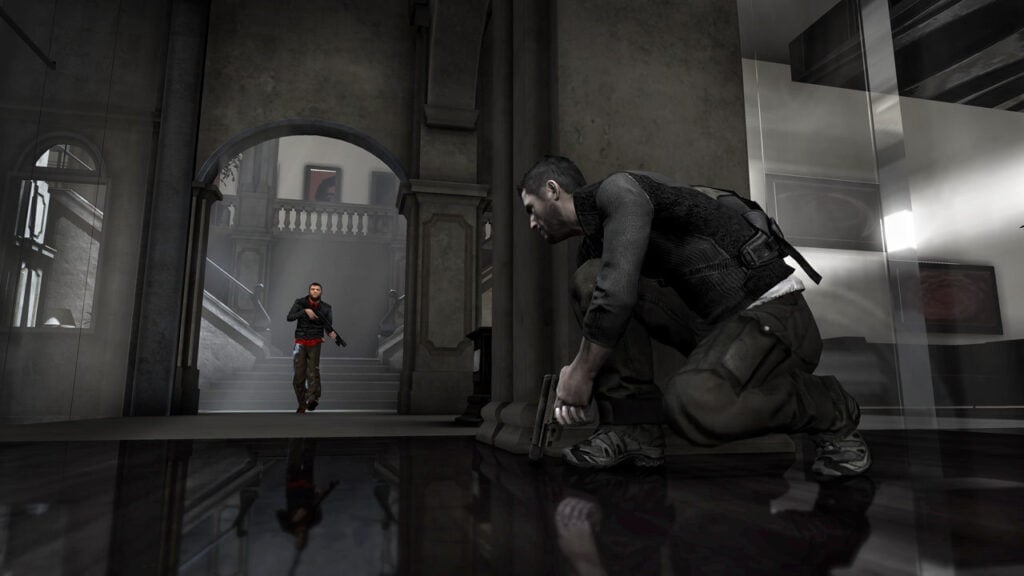
©Splinter Cell: Conviction gameplay screenshot - Original
- Release Date — April 13, 2010
- Platforms — PC, Xbox 360
- Metacritic Score — 85% (Generally Favorable)
Though it steps away from the stealth gameplay that the series is known for, Splinter Cell: Conviction is still an excellent title and another worthwhile entry in the franchise. One of the game’s more compelling additions to the formula is the new Mark & Execute mechanic that allows protagonist Sam Fisher to silently scope out targets, mark them, and take them out in quick succession without aiming. As a result, Conviction‘s focus shifts from sneaking and subterfuge to all-out combat and takedowns, but it’s still an incredibly fun experience even if it does fall a little on the shorter side.
Scott Pilgrim vs. The World: The Game
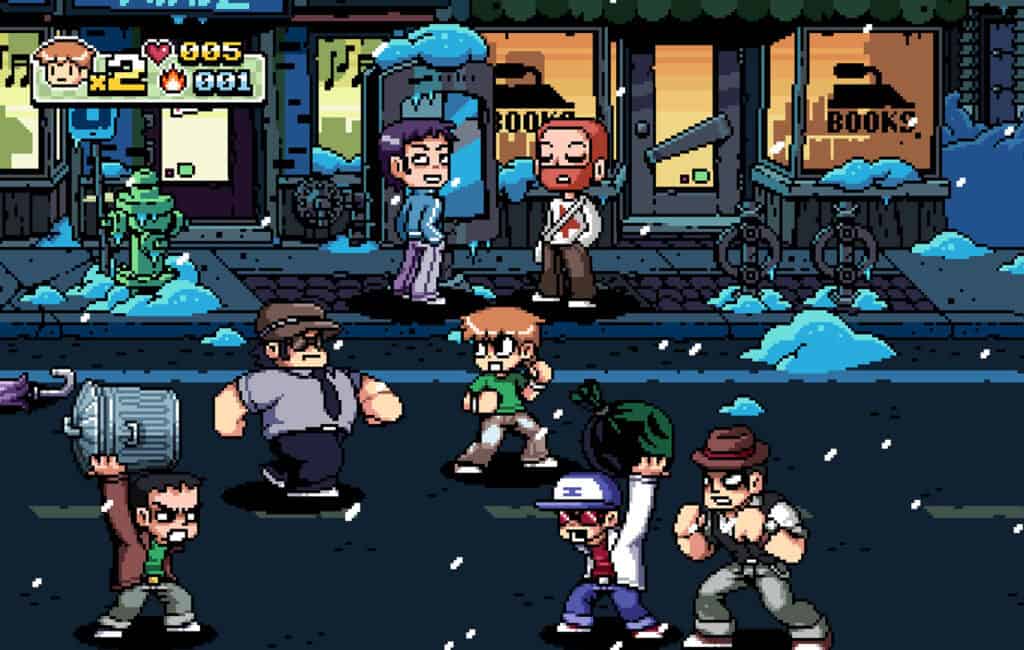
©Scott Pilgrim vs. The World: The Game gameplay screenshot - Original
- Release Date — August 10, 2010
- Platforms — PlayStation 3, Xbox 360
- Metacritic Score — 77% (Generally Favorable)
Releasing the same year as the film based on the graphic novel series of the same name, Scott Pilgrim vs. The World: The Game is an excellent beat ’em up that draws more inspiration from the original comics than the motion picture adaptation. In terms of its gameplay, Scott Pilgrim vs. The World: The Game is very close to the beat ’em up/RPG hybrid of River City Ransom, with players earning experience and money from defeated enemies and using those resources to upgrade their characters. Don’t let the charming art style mimicking the iconic look of the comics fool you, though, as Scott Pilgrim is every bit as challenging as some of the toughest beat ’em up games.
Trials Evolution
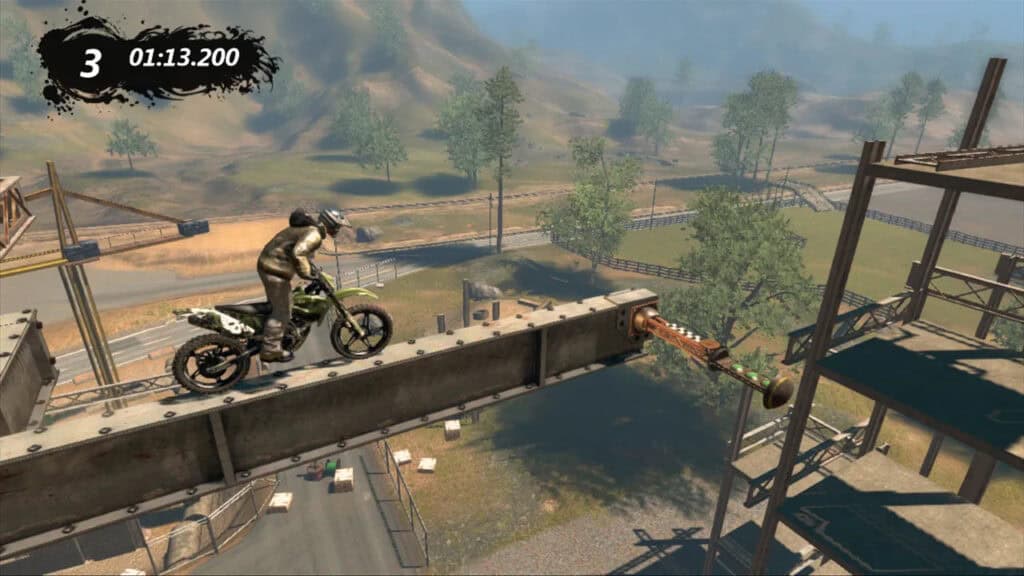
©Trials Evolution gameplay screenshot - Original
- Release Date — April 18, 2012
- Platforms — Xbox 360
- Metacritic Score — 90% (Universal Acclaim)
Ubisoft’s Trials series takes the thrills of NES classic Excitebike and translates them into a 2.5D physics-based stunt bike game where balance and speed are critical. Originally released on the Xbox Live Arcade service before eventually coming to other platforms, Trials Evolution ended up being one of the standout titles on the platform and a must-have game for Xbox 360 owners thanks to its excellent blending of hilarious wrecks and “just one more try” courses. Getting the hang of Trials Evolution‘s handling takes some time, but landing those tricky obstacles and pulling off flips and massive jumps at high speed is an absolute joy.
Far Cry 3
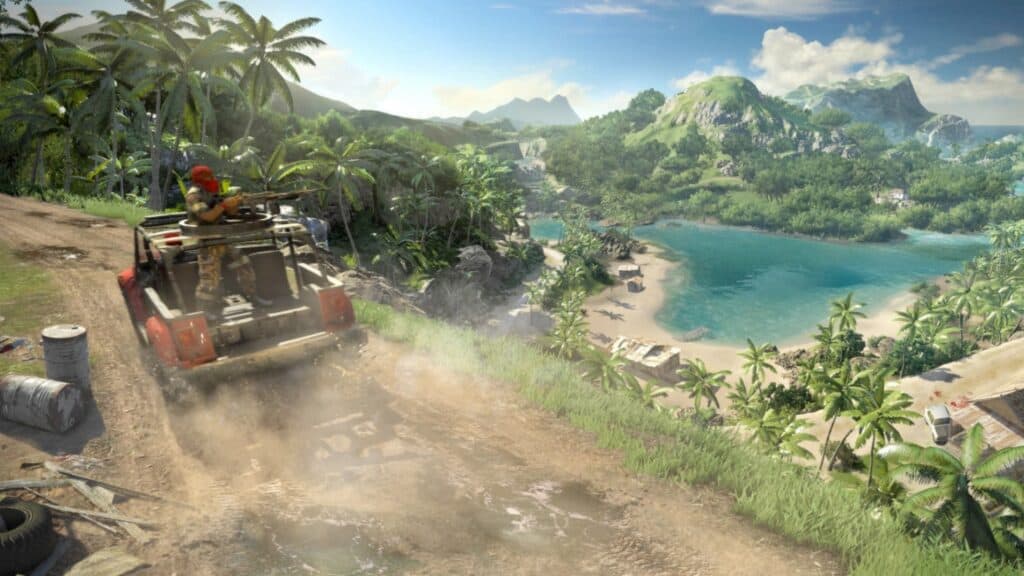
©Far Cry 3 gameplay screenshot - Original
- Release Date — December 4, 2012
- Platforms — PC, PlayStation 3, Xbox 360
- Metacritic Score — 90% (Universal Acclaim)
The first two Far Cry games are each excellent titles that innovate on the first-person shooter genre by introducing open-world gameplay, but Far Cry 3 goes a step further to become a legendary title that transcends both its own franchise and the FPS genre. Not only does Far Cry 3 emphasize some RPG-lite mechanics and character progression, but the game’s story takes center stage as one of the defining features of the game and practically begs players to continue along the critical path in order to see how the protagonist rescues his friends and gets revenge against the diabolical Vaas. The Far Cry series would never be the same after the release of Far Cry 3, and the franchise’s new spin on the open-world FPS formula is never as great again as it is in the series’ third entry.
Far Cry 3: Blood Dragon
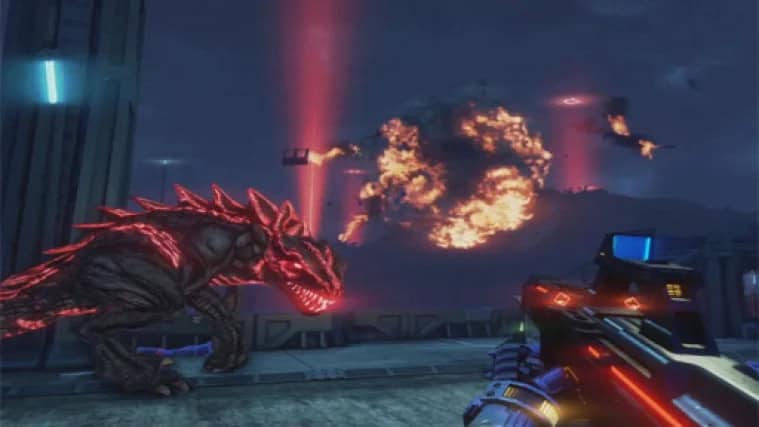
©Far Cry 3: Blood Dragon gameplay screenshot - Original
- Release Date — May 1, 2013
- Platforms — PC, PlayStation 3, Xbox 360
- Metacritic Score — 81% (Generally Favorable)
Roughly 6 months after the release of Far Cry 3, fans were treated to an unexpected but welcome surprise in the release of the massive expansion Far Cry 3: Blood Dragon. Rather than continue the adventure of the main game and its tropical setting, Blood Dragon transports players into a sci-fi future heavily reminiscent of and paying homage to the action and science-fiction films of the 1980s. Aliens and Terminator actor Michael Behn even comes along for the ride as the voice of the game’s protagonist, lending even more credence to its pitch-perfect 80s aesthetic. Everything about Blood Dragon is Far Cry at its most insane. And at the end of the day, that insanity is what the series is all about.
Tom Clancy’s Splinter Cell: Blacklist
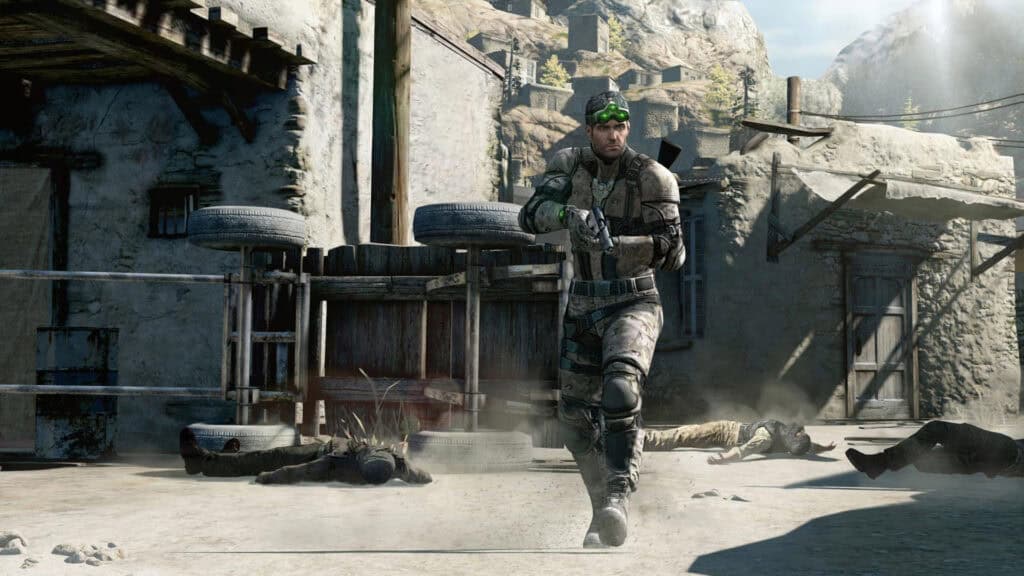
©Splinter Cell: Blacklist gameplay screenshot - Original
- Release Date — August 20, 2013
- Platforms — PC, PlayStation 3, Wii U, Xbox 360
- Metacritic Score — 82% (Generally Favorable)
The last (for now) game in the Splinter Cell series, Splinter Cell Blacklist continues the merging of stealth and all-out action from Splinter Cell: Conviction to great effect, presenting a more balanced blend between the two. The level of freedom that is afforded to players in Blacklist is incredibly impressive, harkening back to the original game’s implementation of multiple pathways to victory through player ingenuity. That said, Blacklist also continues the more accessible approach of Conviction, resulting in it being one of the easiest games in the series and lacking any discernable challenge for franchise veterans.
Rayman Legends
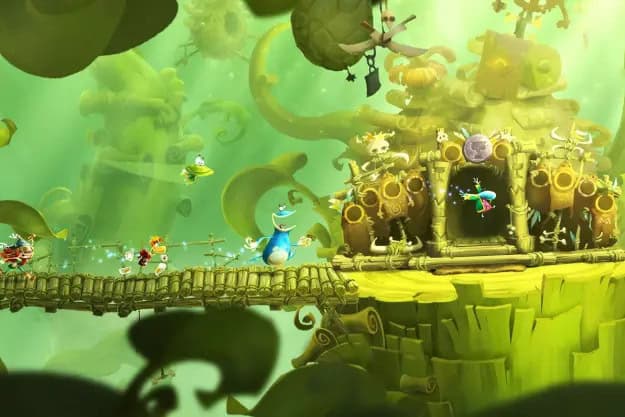
©Rayman Legends gameplay screenshot - Original
- Release Date — September 3, 2013
- Platforms — PC, PlayStation 3, PlayStation Vita, Wii U, Xbox 360
- Metacritic Score — 92% (Universal Acclaim)
Rayman Legends isn’t just the best Rayman game, it makes a strong claim for being one of the best platformers of all time. What separates the Rayman games from genre classics like Mario are their sense of weight and creative mechanics as opposed to speed and precision platforming. Some of the level design on display in Rayman Legends is absolutely breathtaking, with several of the more complex stages resulting in some jaw-dropping moments of awe. The visuals and music round out the package to present Rayman Legends as having some of the best presentations in the genre and a unique visual identity that separates it from other 2D platformers.
Assassin’s Creed IV: Black Flag
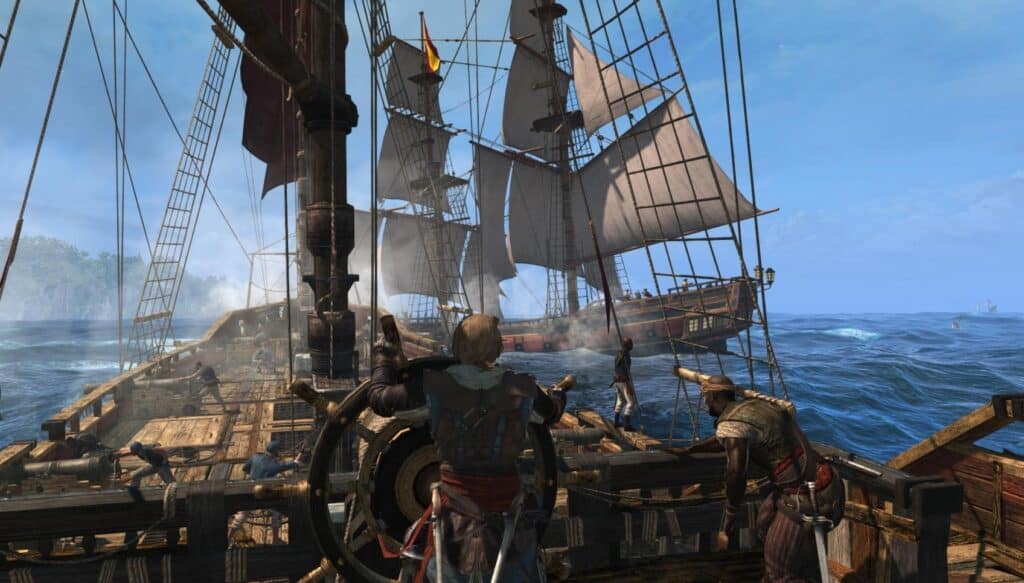
©Assassin's Creed IV: Black Flag gameplay screenshot - Original
- Release Date — October 29, 2013
- Platforms — PC, PlayStation 3, Wii U, Xbox 360
- Metacritic Score — 88% (Generally Favorable)
Though many consider Assassin’s Creed II to be the best game in Ubisoft’s historical stealth franchise, there are just as many players that hold Assassin’s Creed IV: Black Flag as the pinnacle of the series. There are too few games that let players live out the fantasy of being a pirate, but it’s something that Black Flag accomplishes with zeal. Between its excellent on-foot sections in a beautifully rendered vision of the Caribbean and the amazing naval battles behind the helm of massive seafaring pirate vessels, Black Flag offers a little bit of everything for anyone who’s ever dreamed about being a treasure-hunting, swashbuckling scoundrel.
Trials Fusion
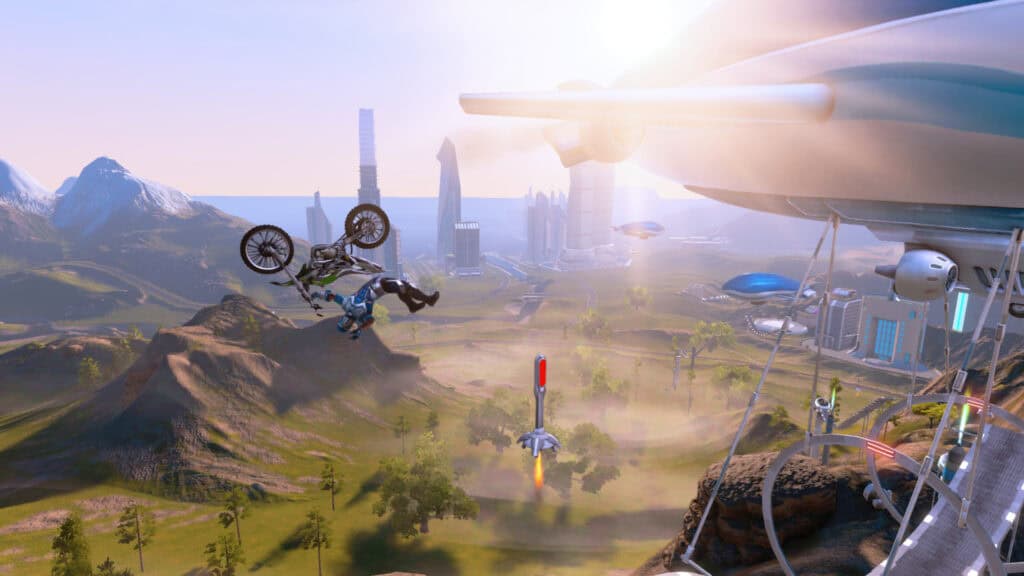
©Trials Fusion gameplay screenshot - Original
- Release Date — April 15, 2014
- Platforms — PC, PlayStation 4, Xbox One
- Metacritic Score — 80% (Generally Favorable)
The only knock against Trials Fusion is that it basically offers more of the same as what players experienced in Trials Evolution. But with a baseline that strong, it’s hard to argue against more of a good thing being bad, per se. Trials Fusion repeats the challenging and oftentimes hilarious physics-based racing of Trials Evolution, polishing up the visuals and adding in new and more tracks for players to test their skills on. It’s not quite as good as Trials Evolution, but it’s still a must-play for anyone who is a fan of the Trials series, and its addictive “just one more run” gameplay.
Child of Light
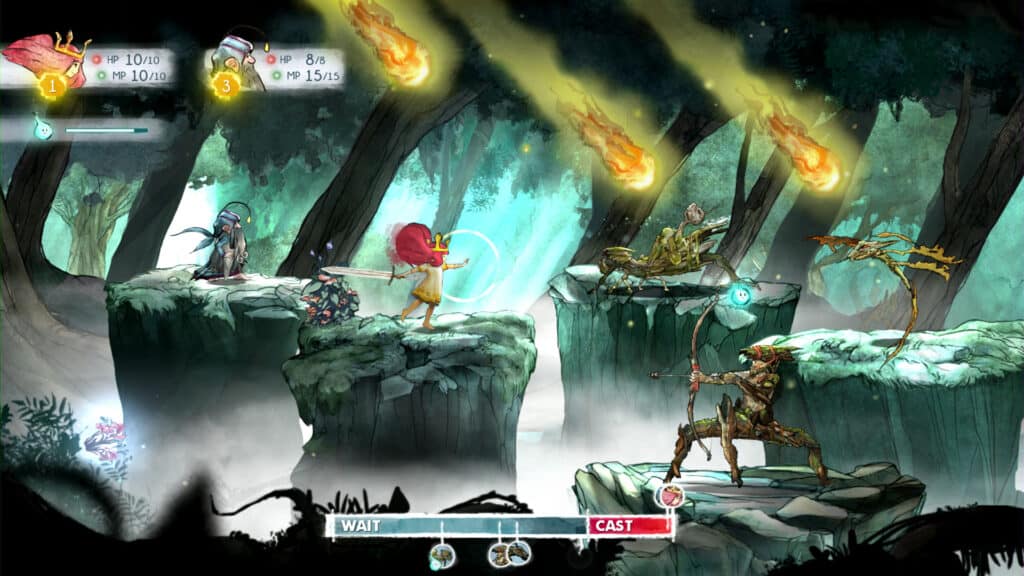
©Child of Light gameplay screenshot - Original
- Release Date — April 29, 2014
- Platforms — PC, PlayStation 3, PlayStation 4, Wii U, Xbox 360, Xbox One
- Metacritic Score — 82% (Generally Favorable)
As more AAA publishers began to embrace the kind of offbeat experiences offered by indie titles, Ubisoft would launch an initiative to develop smaller-scale titles from in-house studios aimed at a similar audience. One of the most critically successful is Child of Light, which mixes 2D side-scrolling platforming with RPG-style combat and character progression in a beautiful storybook visual style. The game is a fairly breezy and unique experience that fully embraces its premise and delivers on all fronts as a fairytale-inspired platforming RPG.
Valiant Hearts: The Great War
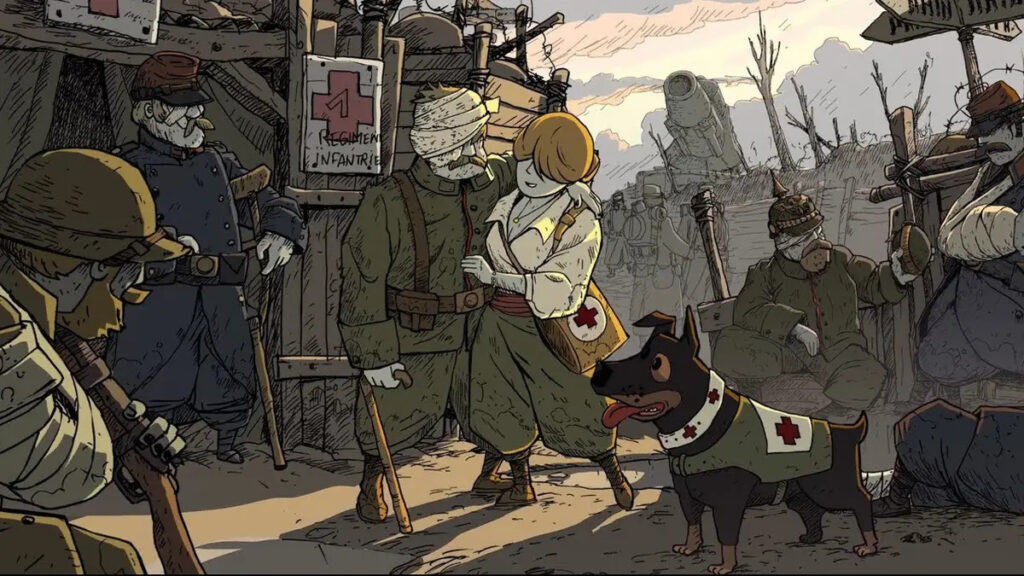
©Valiant Hearts: The Great War gameplay screenshot - Original
- Release Date — June 24, 2014
- Platforms — PC, PlayStation 3, PlayStation 4, Xbox 360, Xbox One
- Metacritic Score — 77% (Generally Favorable)
Along with Child of Light, Valiant Hearts: The Great War is another of Ubisoft’s smaller-scale indie-style projects from 2014, and the title would go on to win both audiences and critics over thanks to its emotionally charged tale taking place during the First World War. Unlike most games that use a WWI setting, Valiant Hearts is not a shooter but instead an old-school adventure game with puzzle elements and a heavy emphasis on narrative storytelling. As a result, Valiant Hearts doesn’t attempt to glorify the act of war but instead confronts its horrors head-on and challenges the player to consider the human cost of battle.
Far Cry 4
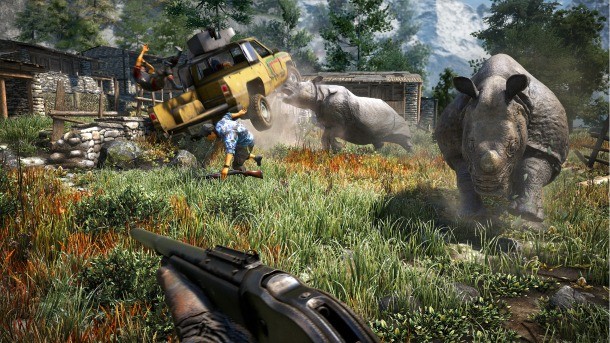
©Far Cry 4 gameplay screenshot - Original
- Release Date — November 18, 2014
- Platforms — PC, PlayStation 4, Xbox One
- Metacritic Score — 85% (Generally Favorable)
One of the last great Far Cry experiences before the series’ open-world formula began to wear itself too thin, is the direct sequel to the excellent Far Cry 3,Far Cry 4. Though it doesn’t do much to differentiate itself from its predecessor outside of a change in setting and a new megalomaniacal antagonist, Far Cry 4 is more of the excellent open-world FPS-meets-RPG lite gameplay that the series is now known for and the open-world sandbox of Nepal is truly a sight to behold on 8th generation hardware.
Tom Clancy’s Rainbow Six Siege
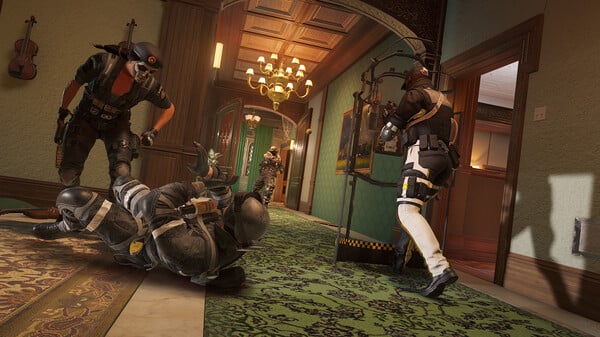
©Gameplay screenshot - Original
- Release Date — December 1, 2015
- Platforms — PC, PlayStation 4, Xbox One
- Metacritic Score — 75% (Generally Favorable)
After existing as a primarily single-player experience with additional multiplayer modes, the switch of the Rainbow Six series to a live-service multiplayer-only title with Rainbow Six Siege would be a tough pill to swallow for many longtime fans. However, once Siege caught on with FPS players, the game’s ascent to becoming one of the most popular competitive shooters was practically unstoppable. Years later, Rainbow Six Siege is still going strong thanks to a host of regular updates and balance tweaks, new operators, new maps, and twists to the game’s addictive 6v6 gameplay.
Watch Dogs 2
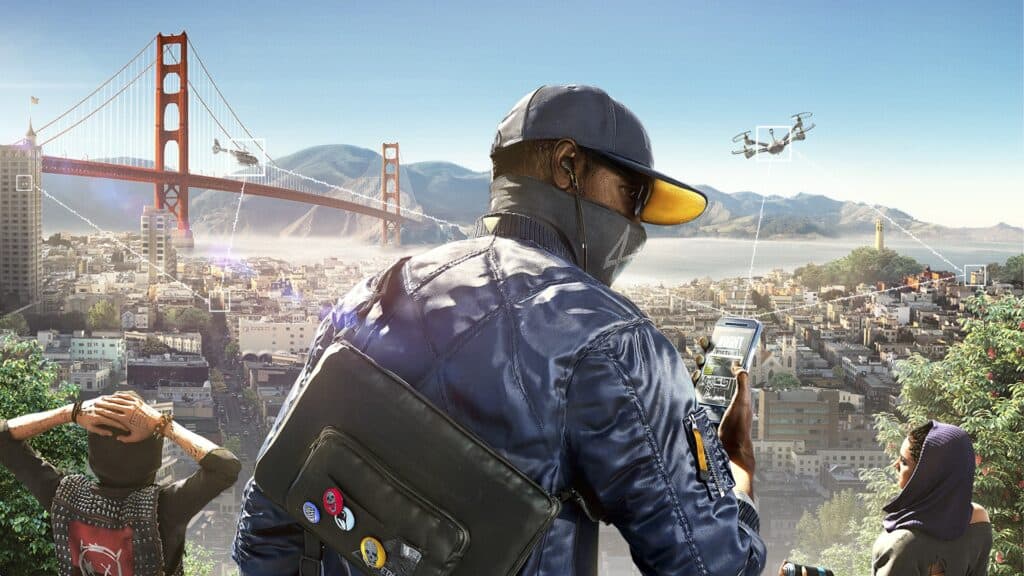
©Watch Dogs 2 key art - Original
- Release Date — November 15, 2016
- Platforms — PC, PlayStation 4, Xbox One
- Metacritic Score — 82% (Generally Favorable)
The original Watch Dogs ended up being a game let down by its lofty ambition, failing to match several of the promises that Ubisoft made about the title ahead of its release. In comparison, Watch Dogs 2 makes good on the open-world hacking franchise’s initial vision, resulting in what’s arguably the best game in the relatively underutilized series. Everything in Watch Dogs 2 is a vast improvement over its predecessor, with better implementations of combat, stealth, hacking, and open-world traversal. It also helps that. The game’s release also coincided with the popularity of Mr. Robot, resulting in a quasi-game adaptation of that series’ dystopian take on the Internet Age.
Tom Clancy’s Ghost Recon Wildlands
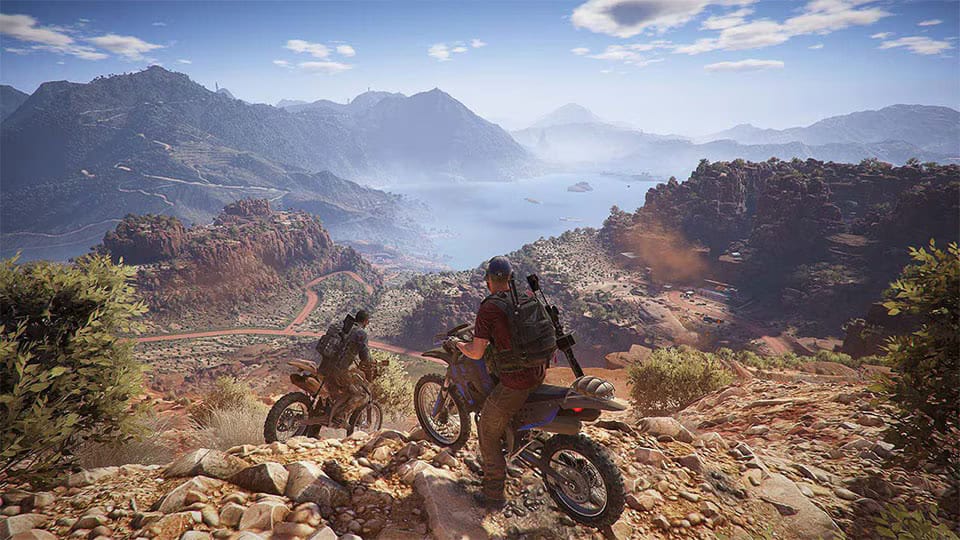
©Ghost Recon Wildlands gameplay screenshot - Original
- Release Date — March 7, 2017
- Platforms — PC, PlayStation 4, Xbox One
- Metacritic Score — 70% (Mixed or Average)
Although critics found plenty to dislike about Ghost Recon Wildlands, there’s something to be said for the game’s absolutely massive and densely packed open world. The open-world formula might seem like a strange fit for the traditionally tactical franchise, but taking the act of hunting down threats and putting it into a vast open-world sandbox complete with multiple vehicles and branching pathways to complete objectives results in some truly excellent gameplay. The single-player mode in Wildlands is great on its own, but the game truly shines when teaming up with a friend in its fairly seamless online co-op mode.
Mario + Rabbids Kingdom Battle
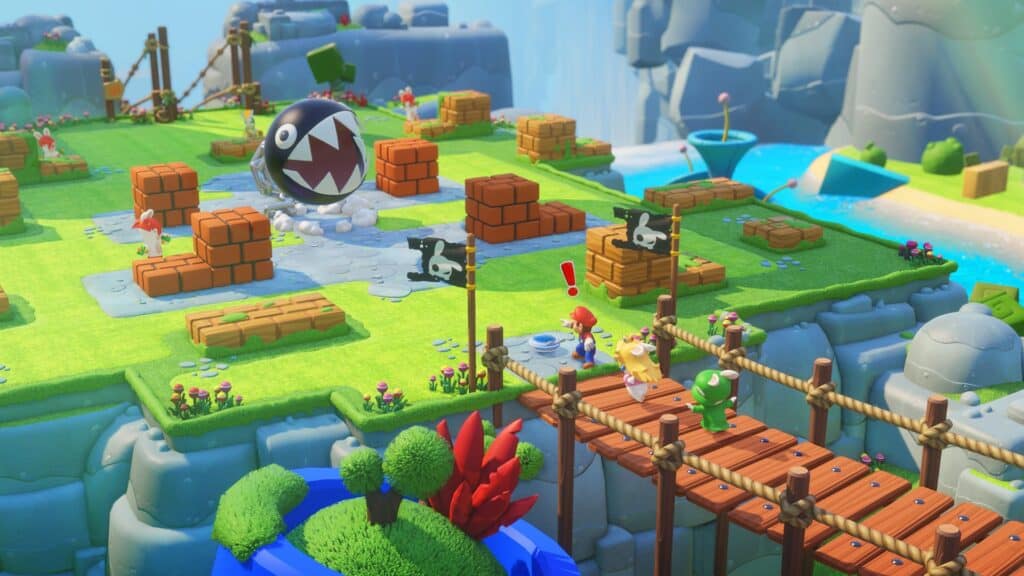
©Mario + Rabbids Kingdom Battle gameplay screenshot - Original
- Release Date — August 29, 2017
- Platforms — Nintendo Switch
- Metacritic Score — 85% (Generally Favorable)
Speaking of Ubisoft’s left-field combinations, how about taking the turn-based tactics gameplay of XCOM: Enemy Unknown and blending it with the world of Super Mario Bros.? All joking aside, Mario + Rabbids Kingdom Battle is an incredible tactics game that more than lives up to its premise and is every bit as good as the modern XCOM titles that inspired it. The charming Rabbids and legacy Mario characters bring a lot of unique abilities and weaponry to the table, turning what could’ve been an awkward combination into an ingenious spin on the tactics genre complete with some inventive movement mechanics and phenomenal visuals.
South Park: The Fractured But Whole
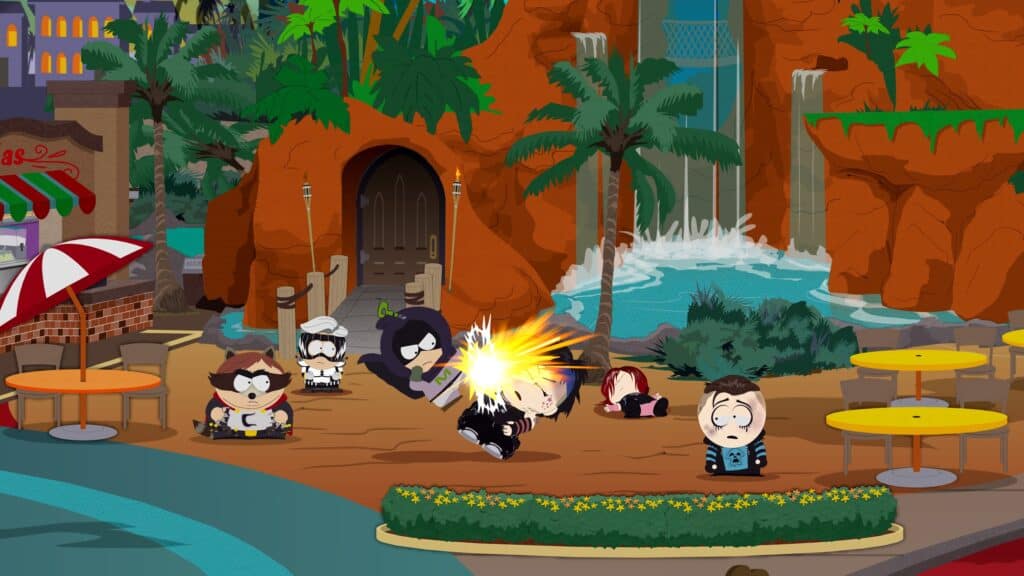
©South Park: The Fractured But Whole gameplay screenshot - Original
- Release Date — October 17, 2017
- Platforms — PC, PlayStation 4, Xbox One
- Metacritic Score — 75% (Generally Favorable)
The first South Park RPG (South Park: The Stick of Truth) was published by Ubisoft, but development duties were handled by RPG legends Obsidian Entertainment. For the sequel, Ubisoft would pass along development to its own in-house studio Ubisoft San Francisco, and that team’s take on the South Park license continues the greatness of its predecessor while also switching up the combat to a classic grid-based tactical system akin to Tactics Ogre or Final Fantasy Tactics. Aside from switching up the combat style, though, players can still expect plenty of irreverent humor and excellent show-accurate visuals in this phenomenal sequel.
Assassin’s Creed Origins
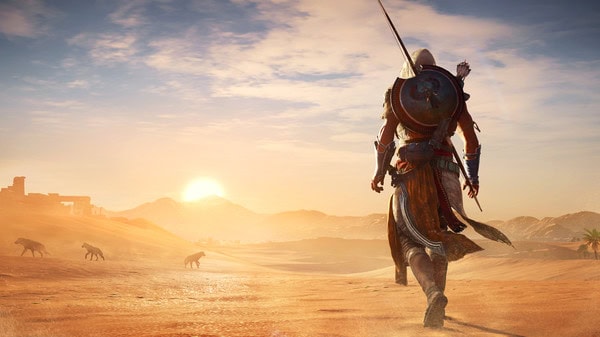
©Assassin's Creed Origins gameplay screenshot - Original
- Release Date — October 27, 2017
- Platforms — PC, PlayStation 4, Xbox One
- Metacritic Score — 81% (Generally Favorable)
After years of repeating the tried-and-true Assassin’s Creed formula, the series would start to exhibit a case of diminishing returns with players who were growing weary of almost yearly entries in the franchise. Taking some time off to revamp the formula and rebrand the franchise as an open-world action RPG turned out to be an excellent move, as Assassin’s Creed Origins would end up being the freshest and most exciting game in the series since Black Flag. Though the game loses a bit of the stealth focus that the series was originally built on, Origins is an excellent entry in the franchise that elevates the series’ combat and storytelling to new heights.
Assassin’s Creed Odyssey
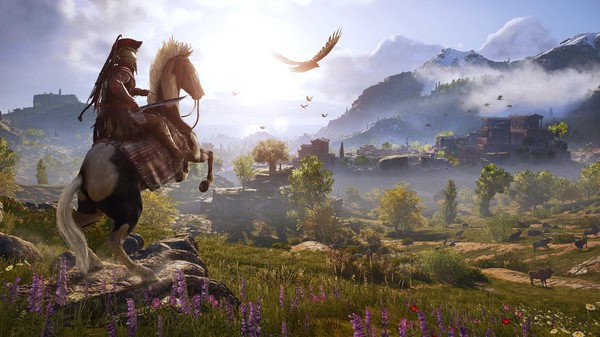
©Assassin's Creed Odyssey gameplay screenshot - Original
- Release Date — October 2, 2018
- Platforms — PC, PlayStation 4, Xbox One
- Metacritic Score — 83% (Generally Favorable)
Continuing in the tradition of Origins, Assassin’s Creed Odyssey is yet another entry in the “modern” take on the franchise implementing open-world gameplay and RPG-style character progression and loot. Unlike Origins, though, Odyssey moves out of the ancient Egyptian setting of its predecessor and into the period of classical Greece, complete with real-life encounters with mythological beasts and a greater emphasis on character builds and varying skill trees. Further, Odyssey introduces the deuteragonist system that would return again in Assassin’s Creed Valhalla just 2 years later, allowing the player to select between a male or female protagonist with slightly branching storylines.
Trials Rising
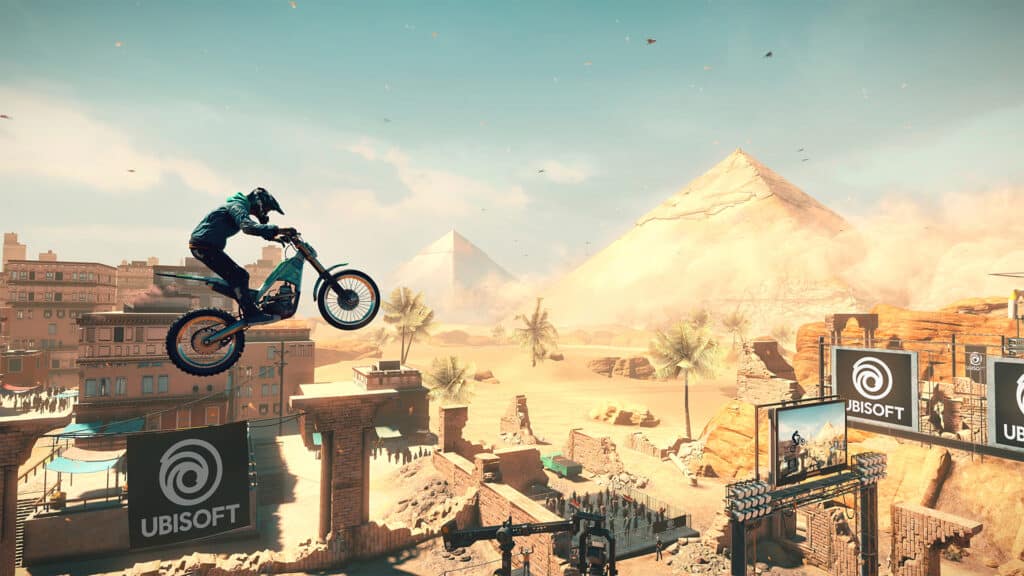
©Trials Rising gameplay screenshot - Original
- Release Date — February 16, 2019
- Platforms — PC, PlayStation 4, Nintendo Switch, Xbox One
- Metacritic Score — 79% (Generally Favorable)
LikeTrials Fusion before it, Trials Rising is yet another new entry in the Trials franchise that does little to differentiate itself from Trials Evolution outside of having vastly improved visuals. However, just like Trials Fusion, Trials Rising‘s implementation of the addictive stunt bike gameplay of Trials Evolution does a lot of the heavy lifting to make the game absolutely worth playing, especially in terms of being able to access the title on modern hardware. Further, Trials Rising is the first title in the franchise to make it to handheld via the Nintendo Switch, proving that it’s a perfect fit for some on-the-go fun.
Tom Clancy’s The Division 2
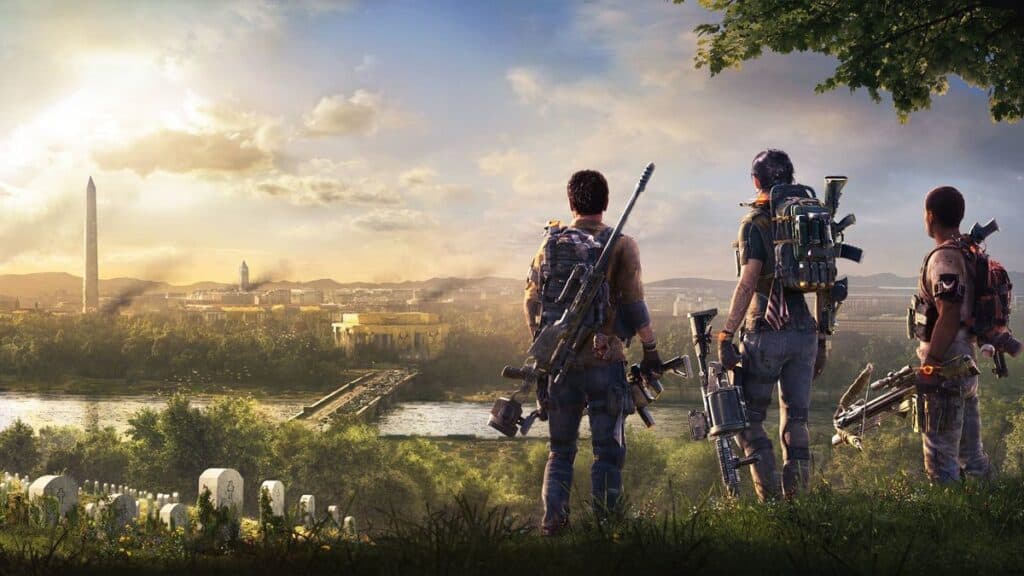
©The Division 2 promotional artwork - Original
- Release Date — March 12, 2019
- Platforms — PC, PlayStation 4, Xbox One
- Metacritic Score — 82% (Generally Favorable)
Continuing with a Ubisoft trend, The Division 2 is yet another sequel that exceeds its predecessor to deliver on the series’ initial promise. As a live-service looter shooter, The Division 2 offers much more variance in the options players have for loadouts than the first Division game, and the new setting of a post-apocalyptic Washington D.C. is just as (if not more) exciting as the first game’s winter New York City. Though it doesn’t fix several of the issues of the first game (bullet sponge enemies, imbalanced boss encounters, etc.), The Division 2 is an example of how to do a military-themed live-service looter-shooter right.
Immortals Fenyx Rising
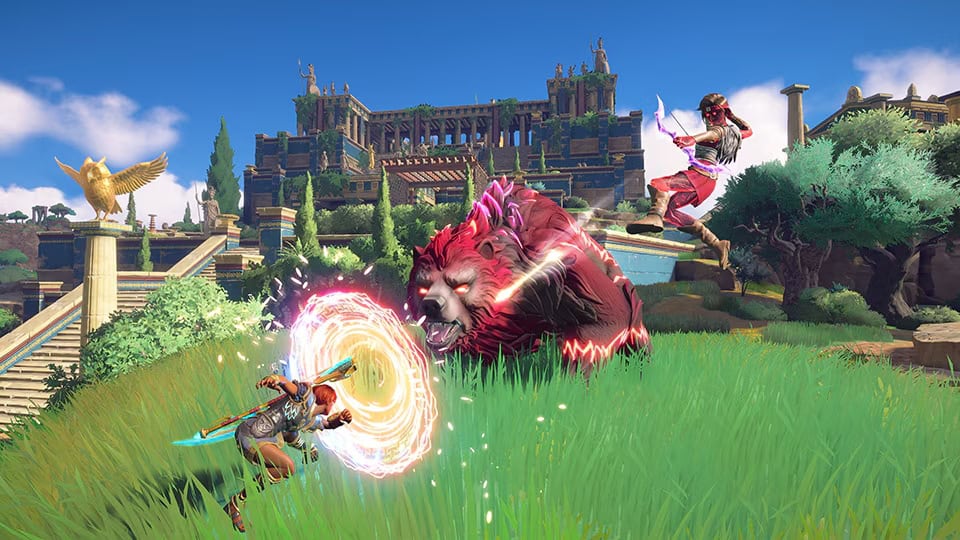
©Immortals Fenyx Rising gameplay screenshot - Original
- Release Date — December 3, 2020
- Platforms — PC, PlayStation 4, PlayStation 5, Nintendo Switch, Xbox One, Xbox Series X/S
- Metacritic Score — 81% (Generally Favorable)
The initial impression of Immortals Fenyx Rising was that it was a cartoonish take on the same ancient Greek setting of Assassin’s Creed Odyssey, but the truth is that it’s actually more akin to a Greek mythology-themed Breath of the Wild. The Zelda comparison is an apt one for Immortals, as the game is heavy on accessible but fun real-time combat, excellent puzzle solving, ingenious and inventive boss encounters, and a compelling story and world that engross you in its mythical take on the action-adventure genre. It’s a shame that the franchise is effectively dead after just one entry, as Immortals is an incredible template that deserves a second chance.
Mario + Rabbids Sparks of Hope
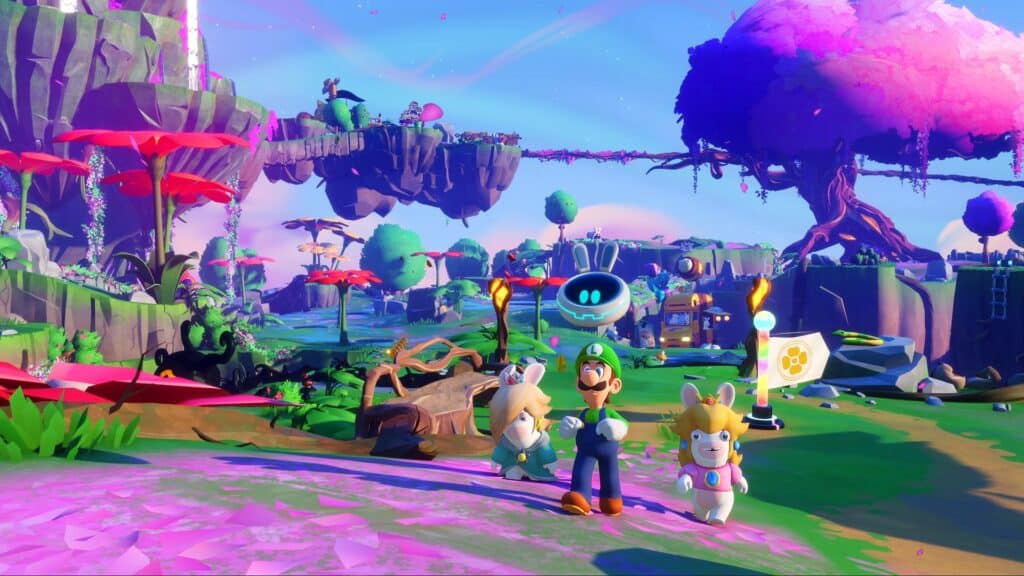
©Mario + Rabbids Sparks of Hope gameplay screenshot - Original
- Release Date — October 20, 2022
- Platforms — Nintendo Switch
- Metacritic Score — 85% (Generally Favorable)
The second entry in the XCOM-like Mario + Rabbids series is both more of what fans love about Kingdom Battle and a different game entirely, introducing a slew of new mechanics and wrinkles to its tactical combat and mission design that set it apart as the best title in the fledgling franchise. The addition of the Sparks to battle, which can have dramatically game-changing effects on the characters that equip them, creates entirely new layers of strategy for players to consider, and the new open-world style exploration and mission set-up gives a real sense of progress to completing the game’s various planets and their different regions.
Avatar: Frontiers of Pandora
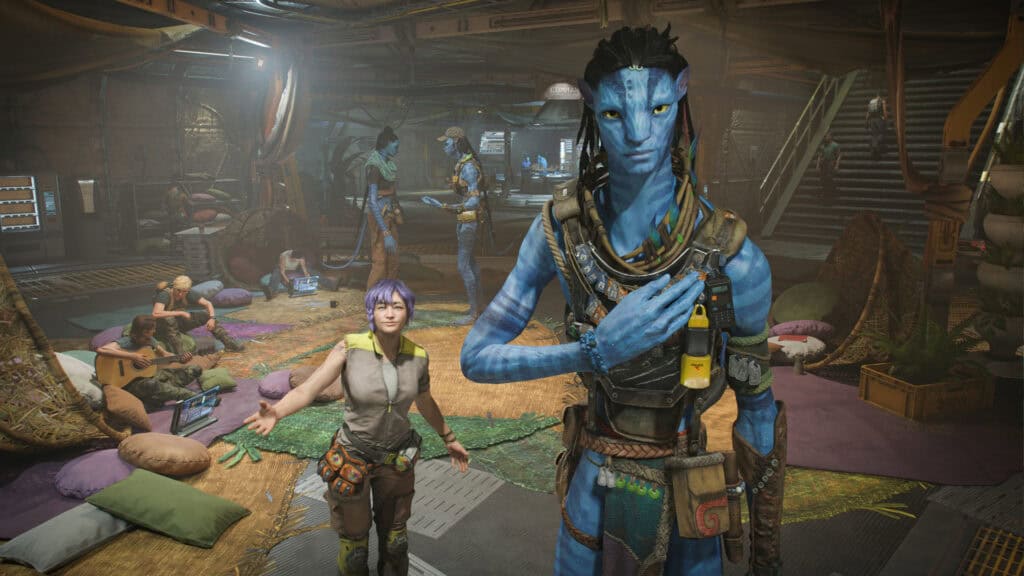
©Avatar: Frontiers of Pandora gameplay screenshot - Original
- Release Date — December 7, 2023
- Platforms — PC, PlayStation 5, Xbox Series X/S
- Metacritic Score — 72% (Mixed or Average)
It may be little more than a Far Cry game taking place in the universe of the Avatar films, but Avatar: Frontiers of Pandora is proof positive that the Far Cry gameplay formula is a perfect fit for the franchise. As one of the Na’vi from the Avatar films, players get to systematically purge the RDA from Pandora, and Massive Entertainment does a great job of recapturing the fictional planet’s breathtaking beauty in the game’s massive and varied open-world sandbox. In fact, the flora and fauna of Pandora play an appropriately integral role in the title’s gameplay loop, and the ability to use the planet as an ally in the fight against the RDA does a great job of connecting the messaging of the films to this excellent video game adaptation.
Prince of Persia: The Lost Crown
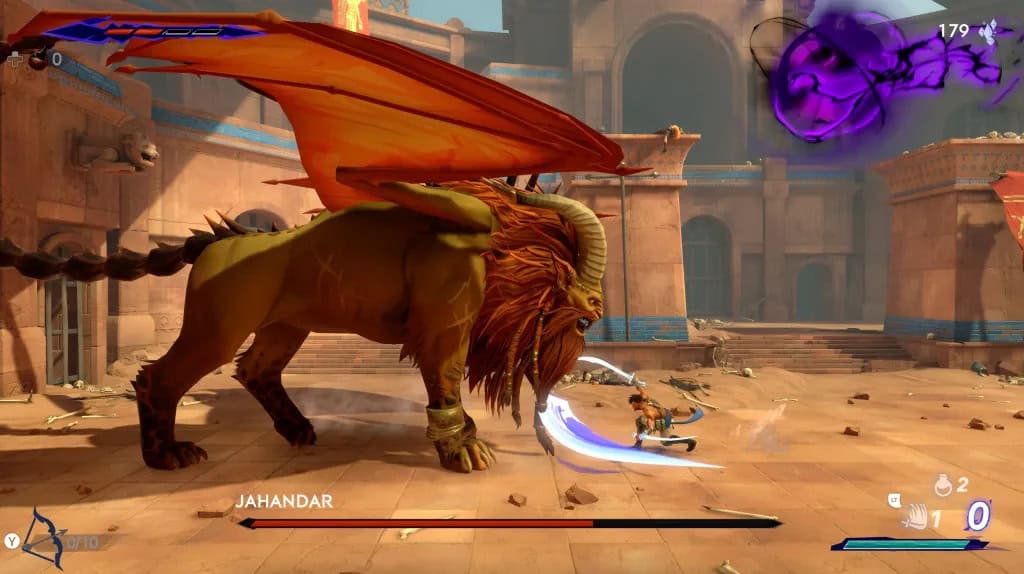
©Prince of Persia: The Lost Crown gameplay screenshot - Original
- Release Date — January 18, 2024
- Platforms — PC, PlayStation 4, PlayStation 5, Nintendo Switch, Xbox One, Xbox Series X/S
- Metacritic Score — 86% (Generally Favorable)
The most recent must-play Ubisoft title is the latest game in the Prince of Persia series after several years off, which sees the franchise reinvented once again as a side-scrolling Metroidvania. And, like how Prince of Persia: The Sands of Time successfully reimagined the long-running franchise as a 3D action-platformer, Prince of Persia: The Lost Crown ends up being both one of the best games in the series and one of the best modern Metroidvanias. All the elements of a great Metroidvania are on full display in The Lost Crown — excellent combat, fluid traversal, game-changing abilities, challenging boss fights, and plenty of secrets to uncover. The runaway success of The Lost Crown has reignited interest in the Prince of Persia franchise, and it hopefully paves the way for a sequel to one of 2024’s early highlights.
The image featured at the top of this post is ©Ubisoft franchise key art.
